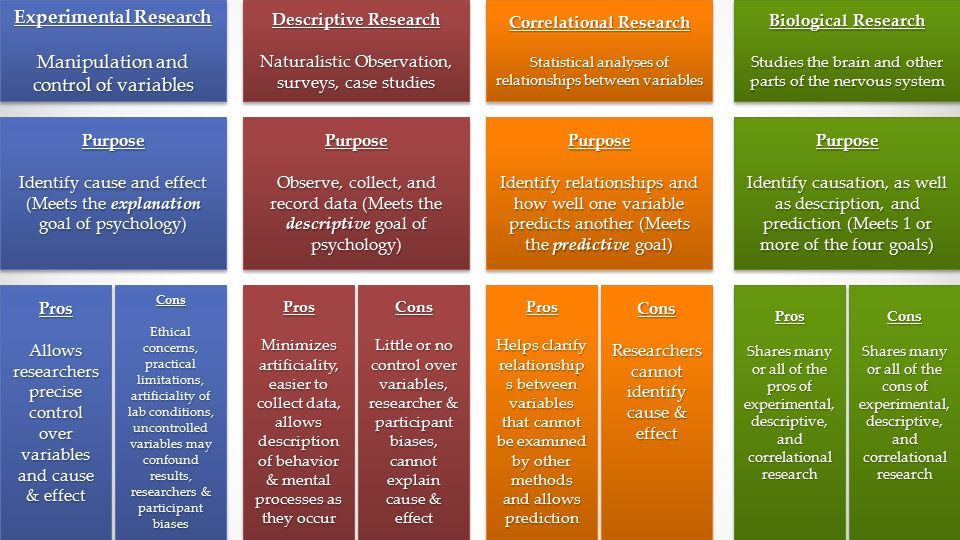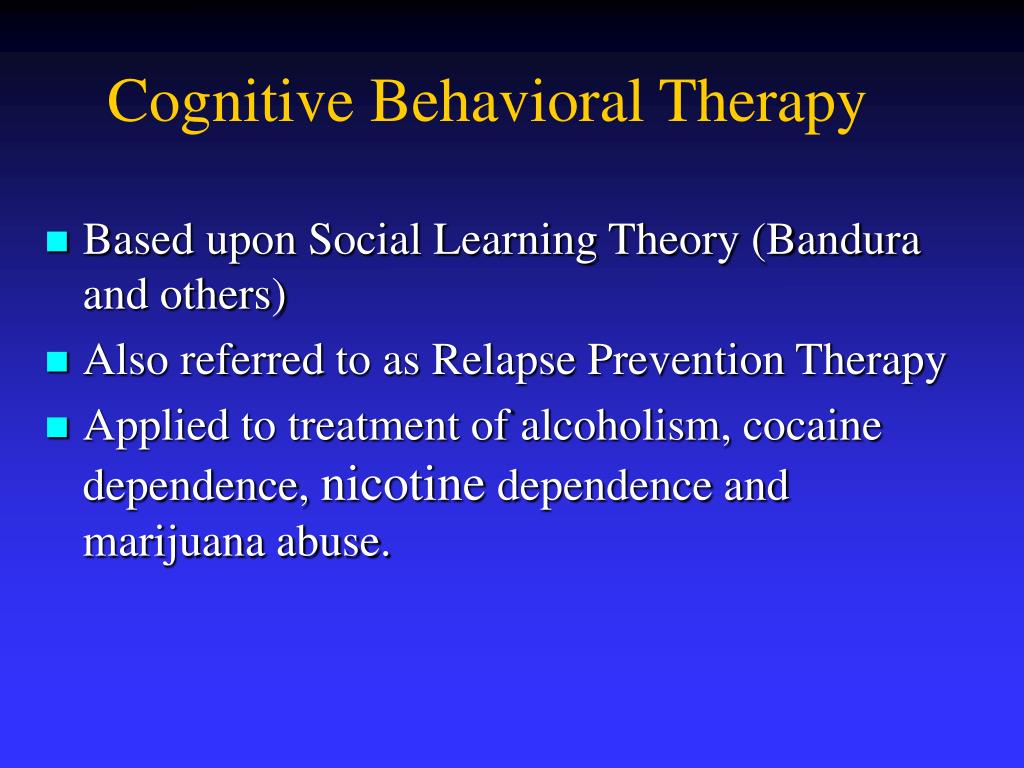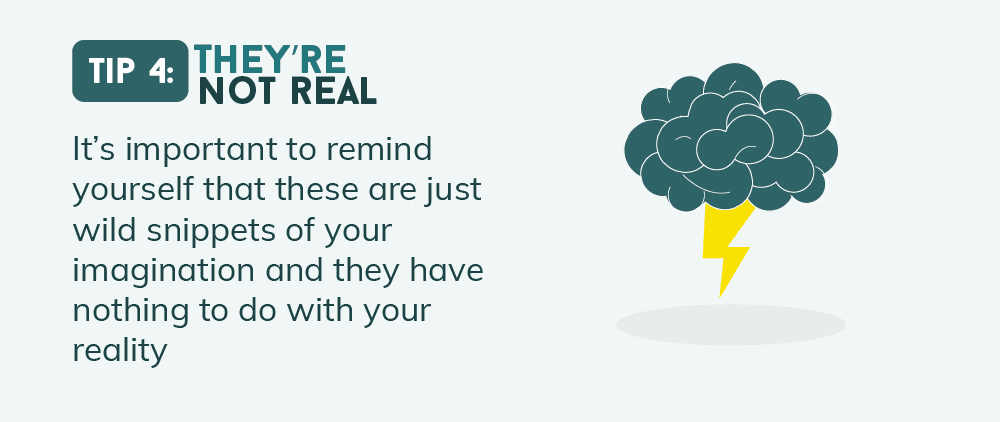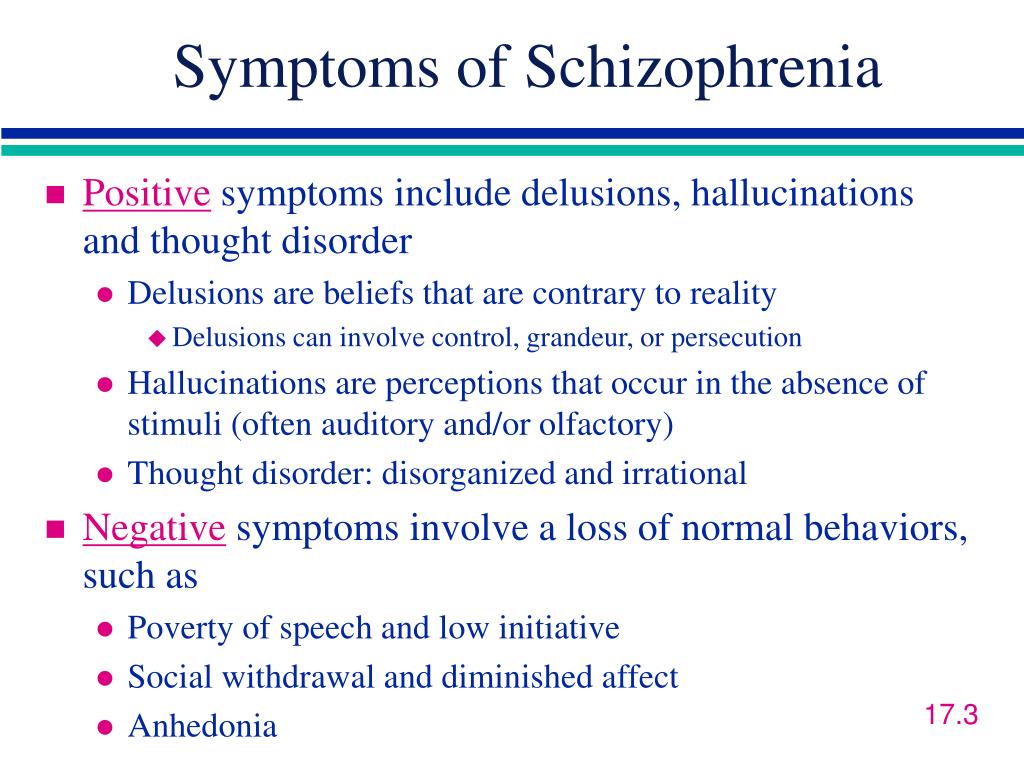Goals of scientific psychology
What They Are and Why They Are Important
Similar to other scientific disciplines, psychology aims to achieve a set of goals in research and practice.
Psychology is a scientific discipline dedicated to understanding human behavior.
Throughout history, the study of human behavior was initially considered solely a philosophical pursuit. However, in 1879 German professor Willhelm Wundt implemented science and the scientific method into the discipline of psychology with the opening of the first psychological institute in Germany.
Psychology includes four core goals, or principles, that reflect its purpose and intentions: to describe, explain, predict, and modify behavior.
Psychology is considered a science because it uses the same scientific approach as other sciences, such as astronomy or chemistry, to help us understand human behavior.
Similar to other branches of science, psychology aims to achieve a set of goals in research and practice:
- describe behavior
- explain behavior
- predict behavior
- change/ control behavior
The first goal of psychology is to describe behavior. This goal asks “What is happening?” or “What is this individual doing?”
This goal allows researchers to collect information and then describe, name, and/or classify what they see. By thoroughly describing a phenomenon or behavior, psychologists can distinguish between typical and atypical behaviors. Describing is the starting point of making sense of things.
To achieve the describing goal, researchers can use various approaches, including natural observation, surveys, case studies, and self-reporting tests.
As an example, one study observed children’s and teens’ Internet habits, identified their usage patterns, and observed whether the kids shared this information with their parents.
The researchers found that the children and teens spent an average of 3.1 hours a day surfing the web. They also observed that the kids were reluctant to tell their parents what they’d searched for on the Internet.
Once behaviors have been thoroughly documented and described down to the smallest detail, the researchers can use that information as a starting point for explaining it.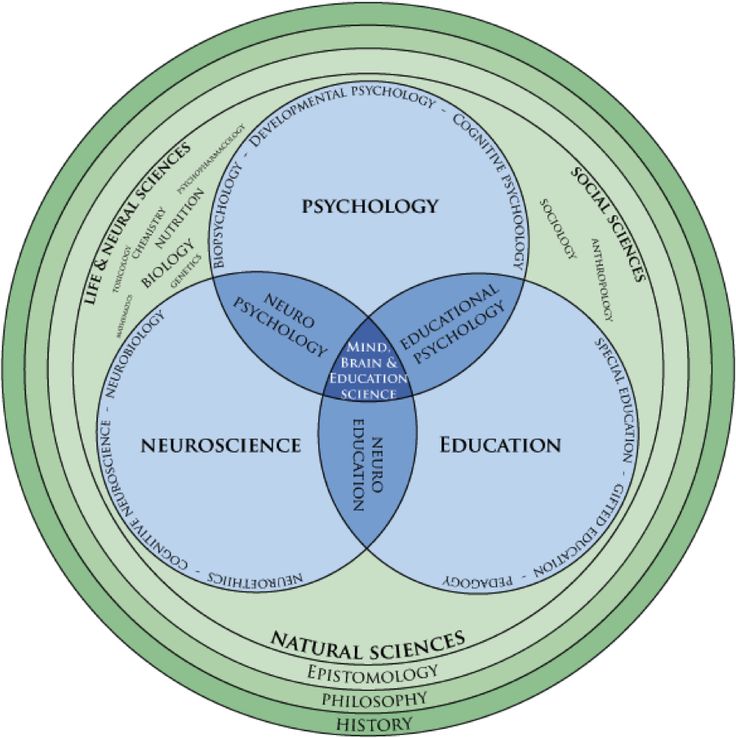
Explain
After the behavior has been thoroughly described, the next goal is to explain it. Explaining the behavior involves an attempt to understand how and why the behavior occurs.
The goal of explaining helps determine why we behave or react in certain ways, or how certain stimuli might affect our mental health, personalities, or relationships. For instance, why do we listen to music or read books? Are our personalities mostly the result of nurture or nature? What causes a person to risk his life for another?
A 2022 study looked at children’s sharing behaviors and examined whether certain cognitive skills might make sharing more likely. The researchers found that a child’s counting skills were in fact the single biggest predictor of fair sharing behaviors.
So not only did the researchers observe children’s sharing skills, but they also explained why some children may have shared more than others — because, with their counting skills, they were essentially able to count out the items for themselves and their peers.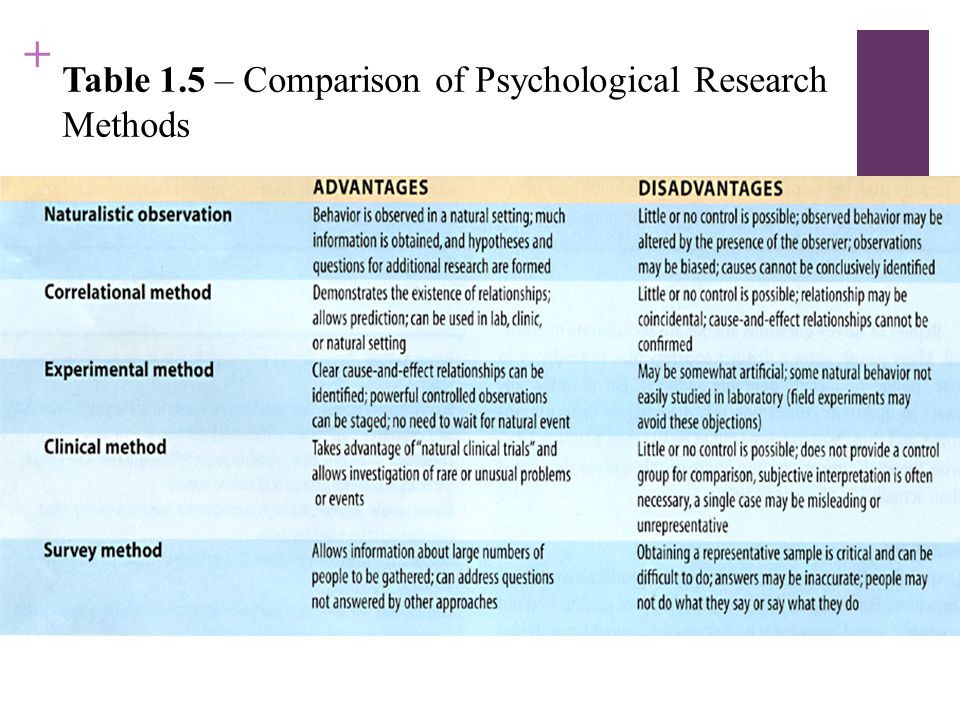
The third goal of psychology is prediction. Once psychologists have described a certain behavior and explained why it happens, they can better predict how and when it might occur again.
The goal of prediction asks “When might this behavior occur again in the future?” or “What would happen if I responded this way?”
Researchers can use the data they’ve collected from prior studies to predict when, why, and how certain behaviors will happen in the future. Through prediction, psychologists can better understand the underlying causes of our actions.
For instance, we generally understand that alcohol can make some people more aggressive. With this information, we might predict that there are more fights at alcohol-serving bars compared to coffee shops. Researchers might take this hypothesis and conduct a study to see if it’s true.
Successful prediction is important to the final goal in psychology: modifying behavior.
Modify behavior
The fourth goal of psychology is to modify behaviors that may be harmful, unproductive, or interfere with daily functioning.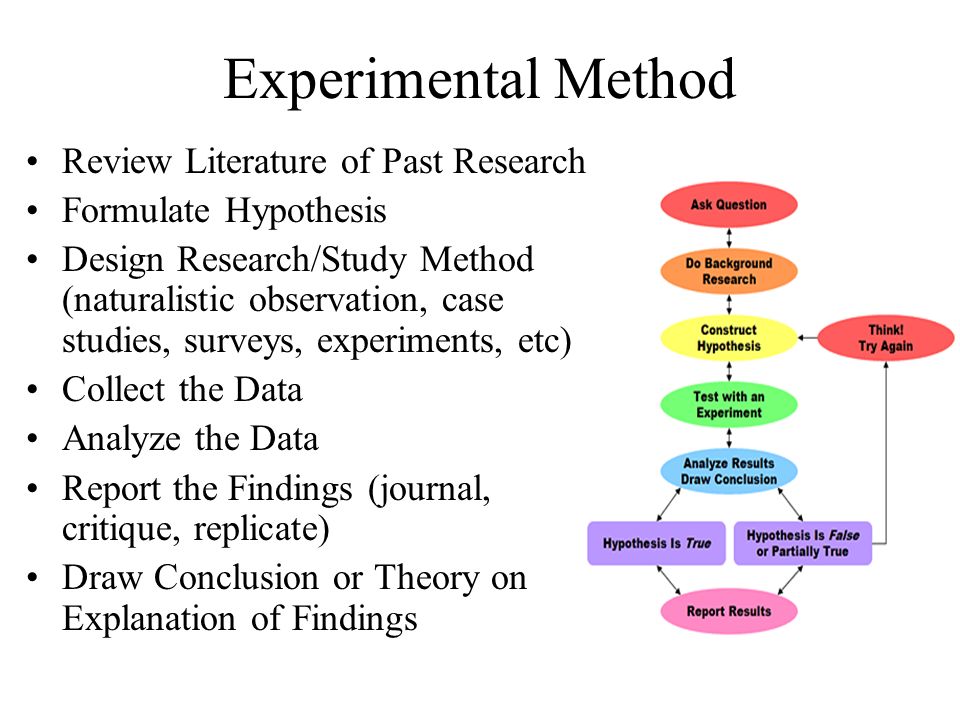
The goal of change asks “How can I stop this habit?” Or “What can I do to be a more generous person?”
Psychotherapy is an example of this goal in action. In cognitive behavioral therapy (CBT), for example, you identify and change negative and harmful thinking patterns.
This final goal can help bring about positive changes in life, such as decreasing addictive behaviors, reducing depressive symptoms, or improving communication.
Once considered solely a philosophical study, psychology now also uses a scientific discipline involving four core goals: to describe, explain, predict, and modify behavior.
If you’re trying to work through a personal problem, you can practice using these four goals at home.
For instance, if you’re trying to quit a bad habit, ask yourself the following question based on the four goals of psychology:
- Describe. What am I doing? (E.g. I’m watching 3 hours of TV per day.)
- Explain. Why exactly am I doing this? (I’m feeling depressed; lonely; bored, etc.
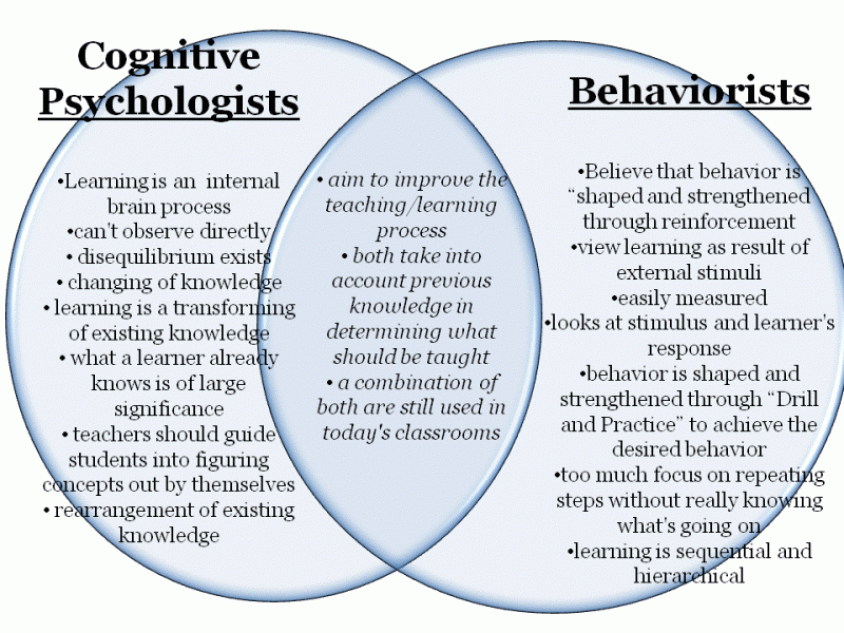 )
) - Predict. How would my life be different if I stop watching TV and exercise instead? (I’d probably be healthier and happier.)
- Modify. How can I quit watching long hours of TV? (I will go for a long walk every evening).
What Are They? Made Simple
Page Contents
The science of psychology is complete only with the study of behavior, mental processes, and organism’s behavior toward their environment. People’s behavior is studied through scientific methods. Psychology, as science has basically the following main aims or goals: understand, predict, describe, influence, and control behavior, and improve the quality of life.
Let’s talk about these goals,
Understand
The first one of the important goals of scientific psychology is the establishment of facts and principles through which behavior can be better understood. Different scientific methods enable us to evaluate and explain the facts and relationships of behavior and mental processes.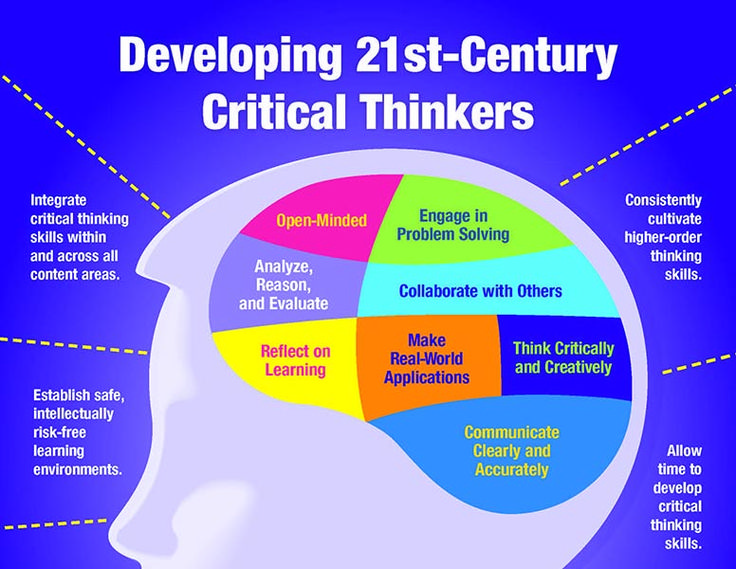
For example, jealousy is often considered a reflection of basic insecurity growing out of distrust of one’s capabilities. It is futile to label unpleasant behavior as “jealous” and think we have explained it.
The person whom one is jealous of is considered to be superior to one in better looking, more intelligent, socially more presentable, etc. If we are to deal adequately with jealous behavior, we must seek the underlying causes. An understanding of the principles of psychology is valuable in dealing with social and natural problems.
Predict
Understanding leads naturally to better prediction and control of behavior. Prediction of mental activity of the individual’s actions can be made through psychology because behaviors are the outcome of a great many conditions or factors.
Just as the astronomer predicts the time of eclipse, and chemist predicts the mixture of two compounds, psychologists can predict the actions, if knows all the laws affecting an individual at that moment. Psychologists have sometimes attempted to arrange behavior into levels of predictability, ranging from simple to complex behavior which is affected by many factors and is often difficult to predict.
Psychologists have sometimes attempted to arrange behavior into levels of predictability, ranging from simple to complex behavior which is affected by many factors and is often difficult to predict.
A successful prediction is based on a thorough knowledge of the stimuli which provoke the behavior. For example, predicting how anxiety a group of employees will experience from knowing how much stress they are under on a job.
Describe
The third goals of psychology are to describe the information. The information gathered through scientific research methods enables us to accurately and completely describe psychological facts and relationships when adequate descriptive information has been acquired. Through this, reasonably accurate predictions can be made and explanations are proposed to help understand these facts and relationships.
For example, information gathered in a survey on the frequency of smoking cigarettes with high nicotine among college students would tell us they are at a high risk of lung diseases such as bronchitis.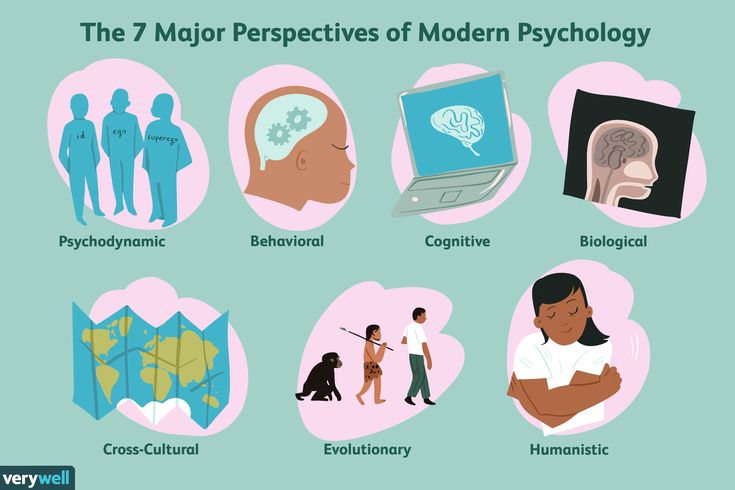
Influence and Control
Finally, when enough understanding and ability to predict has been acquired, we can sometimes intentionally influence people in ways that improve and enrich their lives. This practical aim has been specialized by different applied branches of psychology. It has helped not only the individual but also the institutions and associations to secure better adjustments to the situation. It has helped man’s approaches toward life and the world.
For example, clinical psychologists work in mental hospitals, clinics, social service agencies. Educational and vocational psychologists deal with personal and social adjustment problems, business psychologists apply to interview, screening, selecting personnel, incentive plans, and training programs. All these approaches are influencing and controlling the behaviors of others. Today, many psychologists have helped people understand behavior and mental processes through psychological knowledge and principles.
Subjective Well Being (SWB) of Life
The ultimate aim of psychology is to relieve humans from stress, frustration, conflicts, and anxiety of various kinds so that they can adjust well to their environment.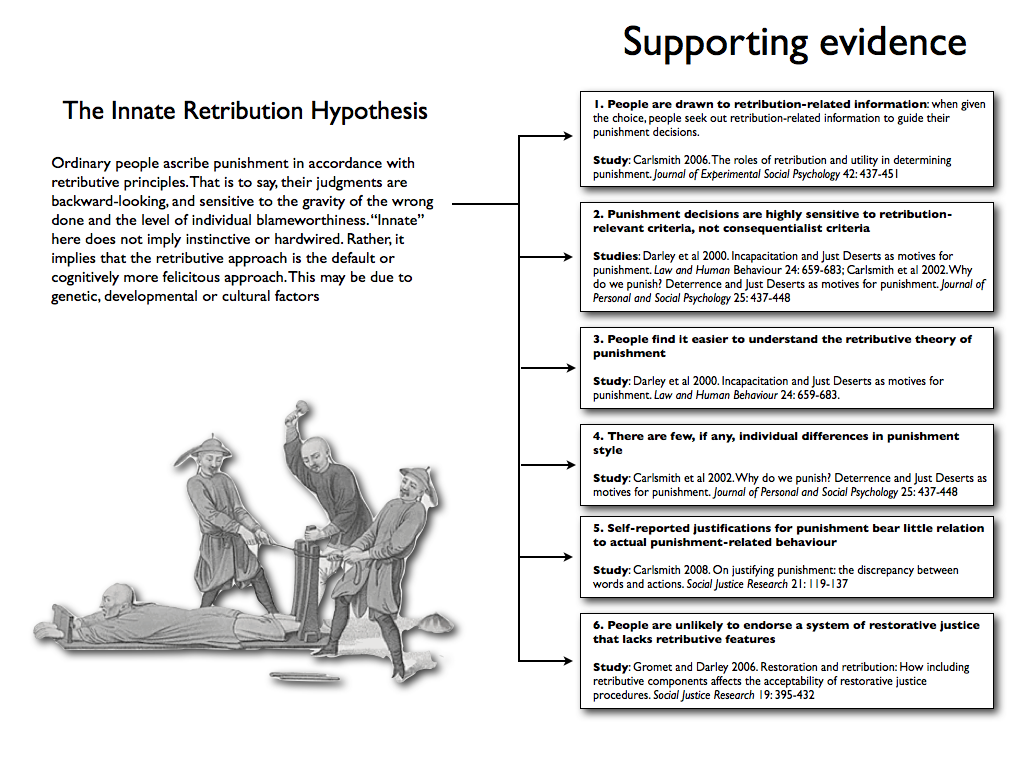 This applied aspect of psychology tries to solve human problems by developing positive interrelationships with each other. Developing a positive relationship, in turn, enhances optimism, feeling of self-worth, confidence, willpower, and finally satisfaction in every aspect of life contributing to one’s own well-being and to the well-being of the people around.
This applied aspect of psychology tries to solve human problems by developing positive interrelationships with each other. Developing a positive relationship, in turn, enhances optimism, feeling of self-worth, confidence, willpower, and finally satisfaction in every aspect of life contributing to one’s own well-being and to the well-being of the people around.
Like this:
Like Loading...
Goals and objectives of psychology | Relationship psychology
Contents
- Goals and objectives of psychology
- Subject of psychology. Subject and object of general psychology
- Methods of psychology. Basic methods of psychology
- Video tasks of psychology as a science
Goals and objectives of psychology
behavior. In other words, the main goal of science is, as it were, determined by two more particular ones, one of which is globally theoretical, and the other is practical. This is also reflected in the differentiation of science into a system of branch disciplines with their own more specific and particular subjects, goals and objectives.
The main tasks of psychology include: 1) identification and description of specific facts of mental life; 2) explanation of mental facts by revealing psychological patterns and laws; 3) elucidation of the mechanisms of manifestation of psychological patterns and laws; 4) development and refinement of the categorical apparatus of psychological science.
The object of research in psychology is a person as a carrier of the psyche. But due to the fact that any person is a member of various groups (from a family and a friendly team to human society as a whole), various social formations (groups, teams, society) also act as an object of study. In a broad sense, animals are also an object of psychology, since the study of the human psyche without its evolution will be incomplete. In such a broad interpretation, the subject of psychology in its classical sense is the content of a person's inner life, directly given to him in sensations, images, thoughts, feelings, and other subjective manifestations.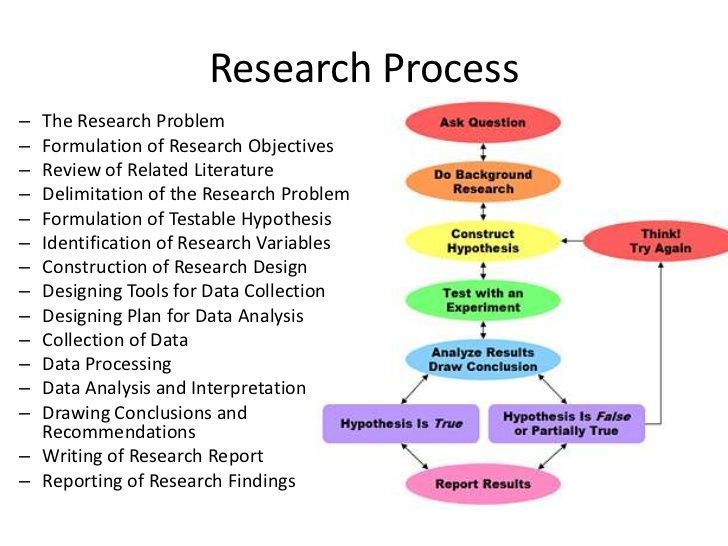 With the help of the psyche, we experience emotions, see the surrounding objects, smell. However, few people thought that all these phenomena belong to our psyche, and not to external reality. Psychic reality is given to us directly, and only through it can we judge the world around us. But what is the psyche for? It exists in order to combine and interpret information about the world, to relate it to our needs and to regulate behavior in the process of adaptation, adaptation to reality.
With the help of the psyche, we experience emotions, see the surrounding objects, smell. However, few people thought that all these phenomena belong to our psyche, and not to external reality. Psychic reality is given to us directly, and only through it can we judge the world around us. But what is the psyche for? It exists in order to combine and interpret information about the world, to relate it to our needs and to regulate behavior in the process of adaptation, adaptation to reality.
Subject of psychology. Subject and object of general psychology
Any science is characterized, among other things, by the presence of its own subject and object of study. Moreover, the subject and object of science are different things. The object is only an aspect of the subject of science, which is investigated by the subject, i.e. researcher. Awareness of this fact is very important for understanding the specifics of general psychology as a multifaceted and diverse science. Given this fact, we can say the following.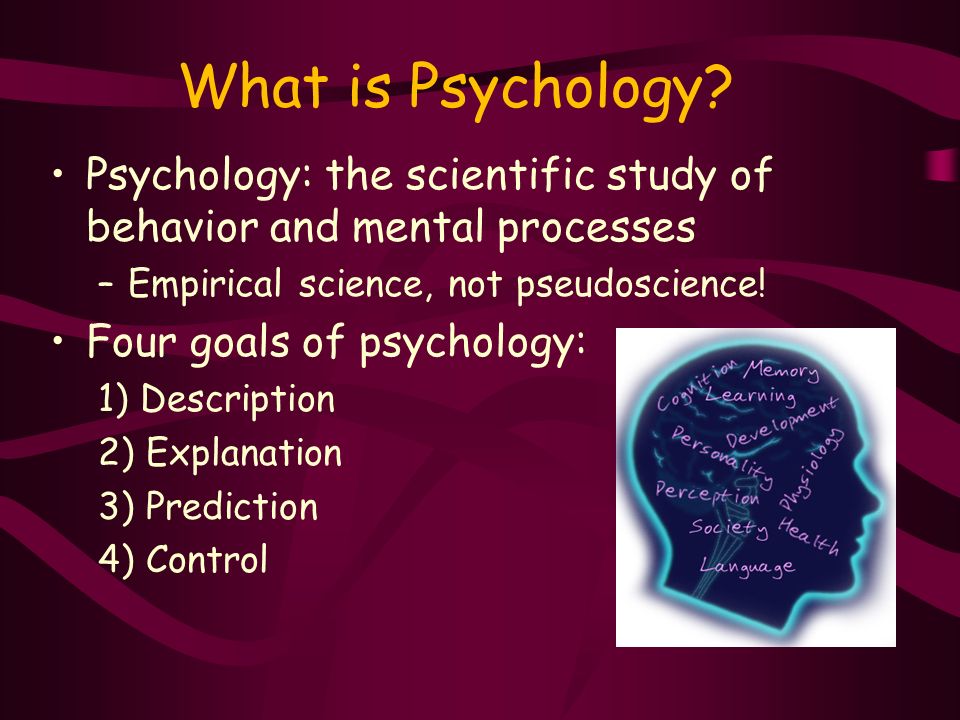
The object of general psychology is the psyche itself, as a form of interaction between living beings and the world, which is expressed in their ability to translate their impulses into reality and function in the world on the basis of available information. And the human psyche, from the point of view of modern science, performs the function of an intermediary between the subjective and the objective, and also realizes a person's ideas about the external and internal, bodily and spiritual.
The subject of general psychology is the laws of the psyche as a form of human interaction with the outside world. This form, due to its versatility, is subject to research in completely different aspects, which are studied by different branches of psychological science. The object is the development of the psyche, norms and pathologies in it, the types of human activities in life, as well as his attitude to the world around him.
Due to the scale of the subject of general psychology and the ability to single out in its composition many objects for research, at present in psychological science there are general theories of psychology that are guided by different scientific ideals and psychological practice itself, which develops certain psychotechnics to influence consciousness and control it . But no matter how complex the ways in which psychological thought advances, constantly transforming the object of its research and plunging deeper into the subject due to this, no matter what changes and additions it is subject to and no matter what terms it denotes, it is still possible to single out the main blocks of terms, which characterizes the object of psychology. These include:
But no matter how complex the ways in which psychological thought advances, constantly transforming the object of its research and plunging deeper into the subject due to this, no matter what changes and additions it is subject to and no matter what terms it denotes, it is still possible to single out the main blocks of terms, which characterizes the object of psychology. These include:
- mental processes - psychology studies mental phenomena in the process of formation and development, the product of which is results that take shape in images, thoughts, emotions, etc.;
- mental states - activity, depression, cheerfulness, etc.;
- mental properties of a person - purposefulness, diligence, temperament, character;
- psychic neoplasms are those knowledge, skills and abilities that a person acquires during his life.
Naturally, all psychic phenomena cannot exist in isolation, but are closely connected with each other and influence each other.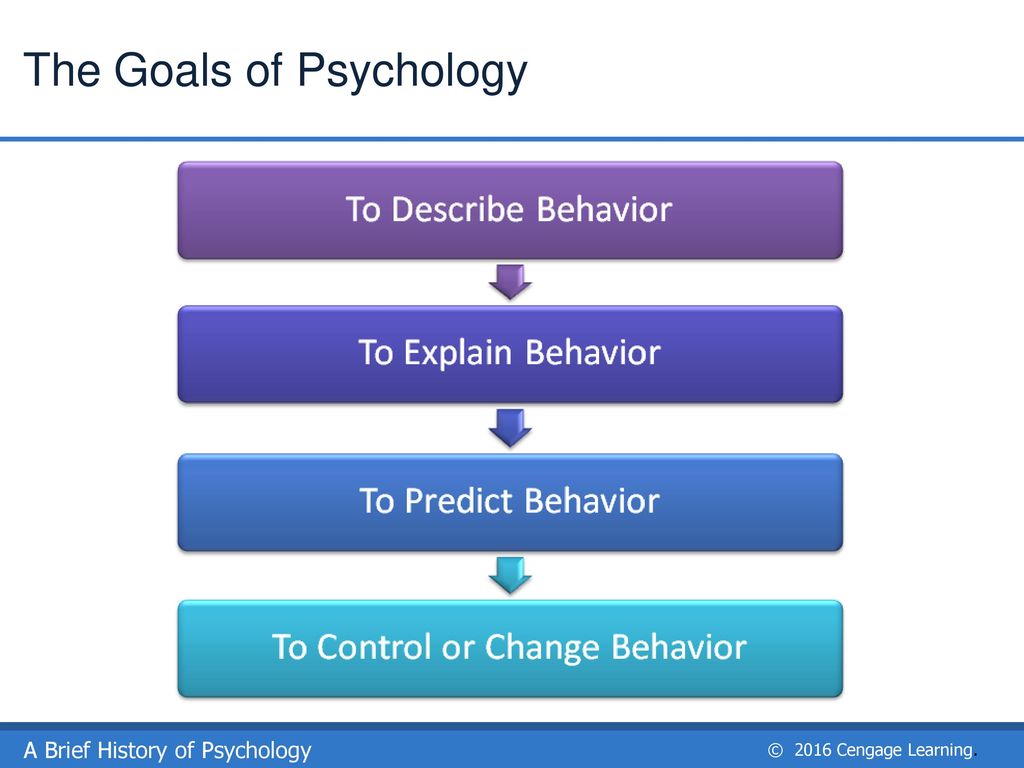 But we can consider each of them separately.
But we can consider each of them separately.
Methods of psychology. Basic methods of psychology
Psychology is a science that studies a person, his mental properties and behavior in various situations. In psychology, there are several basic methods of human research that help a specialist to correctly assess the psychological state and draw appropriate conclusions:
- Surveillance;
- Experiment;
In addition, auxiliary methods are used in the study of human psychology, including:
- Conversation with the patient;
- Testing;
- Study of the patient's biography;
- Poll.
Let's consider in more detail http://www.psychologies.ru/ the main methods of psychology:
- Observation
The most widespread and effective method. It consists in the collection and study of scientific facts obtained by observing human behavior. In simple terms, a specialist contemplates a person without interfering with the situation. A distinction is made between short-term observation (according to the cross-sectional method) and long-term (longitudinal) observation. In this case, the psychologist can be in the role of a passive observer (according to the detached observation method) or actively participate in the life of the person being studied (according to the included observation method) or a group of people. This method is often used in preschool and educational institutions to study the behavior of children in a team (general observation). There is also selective observation, when only certain members of the team become the subject of study. The method of observation allows you to study the human psyche in different conditions and life situations (during play or work).
A distinction is made between short-term observation (according to the cross-sectional method) and long-term (longitudinal) observation. In this case, the psychologist can be in the role of a passive observer (according to the detached observation method) or actively participate in the life of the person being studied (according to the included observation method) or a group of people. This method is often used in preschool and educational institutions to study the behavior of children in a team (general observation). There is also selective observation, when only certain members of the team become the subject of study. The method of observation allows you to study the human psyche in different conditions and life situations (during play or work). - Features of observation
This method is used in situations where the researcher does not interfere in the process by observing the object of interest from the side. This allows you to get a more complete psychological picture of the person being studied. In practice, it is usually used under the condition that the object of interest is not aware of the presence of the observer, this allows the study of human behavior in natural conditions.
In practice, it is usually used under the condition that the object of interest is not aware of the presence of the observer, this allows the study of human behavior in natural conditions. - Experiment
Is a more effective method of the human psyche, gives more information and an expanded picture of behavior in certain conditions. It consists in the fact that the specialist creates certain conditions that allow the subject of research to better express itself.
There are several types of the method:
- Laboratory - the study is carried out in psychological laboratories equipped with special equipment. The disadvantage of this method is that the subject knows about the experiment, which can cause tension in behavior and reactions to external stimuli that are not characteristic of him;
- Natural - the study takes place in natural conditions for the study, while he should not know about the experiment. This allows you to see the behavior of a person in a familiar, calm environment.
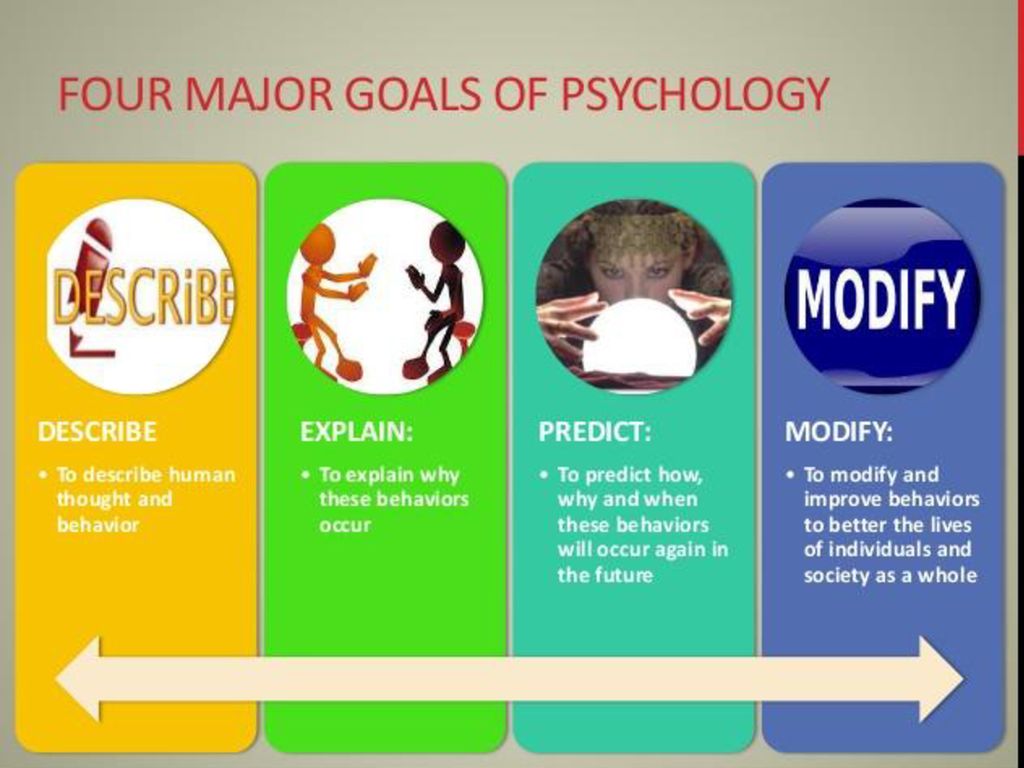 The natural research method is more effective and informative than the laboratory one. Quite often, psychologists practice speaking in front of a group of people while observing their reactions.
The natural research method is more effective and informative than the laboratory one. Quite often, psychologists practice speaking in front of a group of people while observing their reactions.
The main methods of psychology are successfully used by specialists in our country and abroad and allow assessing a person's mental health in various conditions and situations.
Video tasks of psychology as a science
Question 3. Subject, object, goals and objectives of psychology.
In the second question lectures were presented history subject of psychological science.
In psychology in the most general object of study perform media psyche : man and animals. Man is main object of psychological science. But due to the fact that any person enters into different groups of people (from family and professional team to human society as a whole) as an object of study are as well as various social formations (groups, collectives, society).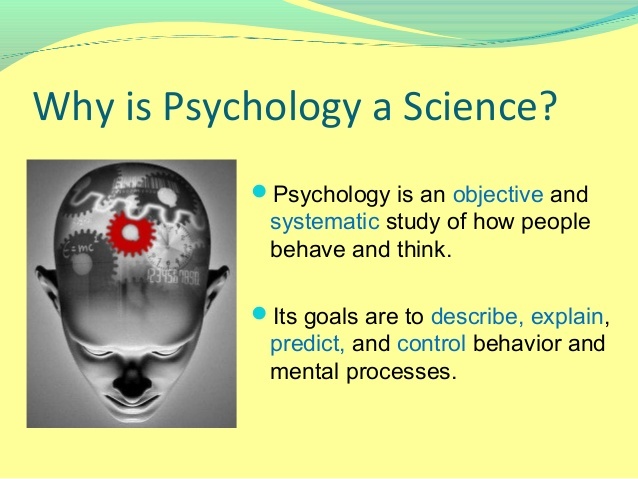 Because the study the human psyche in its entirety outside of its evolution is impossible, insofar as the object of research are animals and, accordingly, their psyche is an integral part of the subject psychology. Thus, the objects psychology studies are: people various social groups of people, animals and their communities.
Because the study the human psyche in its entirety outside of its evolution is impossible, insofar as the object of research are animals and, accordingly, their psyche is an integral part of the subject psychology. Thus, the objects psychology studies are: people various social groups of people, animals and their communities.
The subject of psychology advocates psyche in general or its separate aspects and manifestations. The main subject of study of psychology man as an object - psyche human .
Psychological world - the world of phenomena of inner life man is extremely rich and varied. In his mind a man keeps images of the world in which he lives, he has an idea of the environment, understands and explains natural and social worlds. In other words, a person has its own alignment : picture of the world and the image of oneself (image I) in this world.
IN at the same time, the image of the world in man different from the image of the world created in natural science and social science. Naturally, each individual incomparably less complete, less adequate and dismembered. The main difference is that human images, ideas and thoughts according to A.N. Leontiev, biased: they are pierced emotions, feelings, experiences. IN expression "the subjective world of man" 14 available in another shade: human the perception of the external world is alive, emotional perception, which depends on the subject's desires, moods, often leading to distort the true picture of the world. It's impossible to imagine a person devoid of feelings and experiences: our inner experience teaches that objects not causing an emotional response our soul, leave us indifferent, perceived as an external background. Exactly the presence of higher feelings - shame, repentance, conscience, love, - distinguishes a person from animal.
Naturally, each individual incomparably less complete, less adequate and dismembered. The main difference is that human images, ideas and thoughts according to A.N. Leontiev, biased: they are pierced emotions, feelings, experiences. IN expression "the subjective world of man" 14 available in another shade: human the perception of the external world is alive, emotional perception, which depends on the subject's desires, moods, often leading to distort the true picture of the world. It's impossible to imagine a person devoid of feelings and experiences: our inner experience teaches that objects not causing an emotional response our soul, leave us indifferent, perceived as an external background. Exactly the presence of higher feelings - shame, repentance, conscience, love, - distinguishes a person from animal.
But reason and feelings do not exhaust everything the inner world of man. Human thinks and acts for the sake of something; one and the same event can deeply affect his feelings, and can leave indifferent. There is another layer of our spiritual life that explains the complexity human behavior is the area human desires, aspirations, intentions, interests, needs. We We always want something and strive for something. Needs, interests, ideals are driving forces of human behavior, the activity of his aspirations.
There is another layer of our spiritual life that explains the complexity human behavior is the area human desires, aspirations, intentions, interests, needs. We We always want something and strive for something. Needs, interests, ideals are driving forces of human behavior, the activity of his aspirations.
Internal the life of a person is realized . A person is aware of his thoughts, feelings, goals, actions. In the conscious volitional behavior he carries out power over oneself, subjugates some motives others, puts what is due above what is desired. Others are represented in the human mind people, himself, his place in society.
Also a person is faced with actions about which he cannot give a clear report, driving reasons which are not represented in his self-consciousness. The psychological world of man includes into yourself and unconscious phenomena . These include drives, automatisms, habits, intuition. Each of us in that or otherwise thought about the actions, the motive cause of which we not clear enough.
All marked the above phenomena constitute the psychological content of human life. Each of mental processes contributes into the wealth of the inner world, determines the specifics of the manifestations of human subjectivity. psychological world individual is unique and inimitable.
primary goal psychological science, defining its essence is the knowledge of the psychic, in all its manifestations in our life: from elementary mental acts (feelings) to the personality and its behavior. In turn, the process of achieving this goals, presupposes, on the one hand, clarification of the place of man in the world, and with other, use received psychological knowledge in everyday practice. That is, the main goal is determined by two private: one global-theoretical, other practical. It is clear that this process crushing goals can be continued. This is reflected in the differentiation science (and, in particular, psychology) on system of industry disciplines with their more specific and particular subject, goals and objectives.